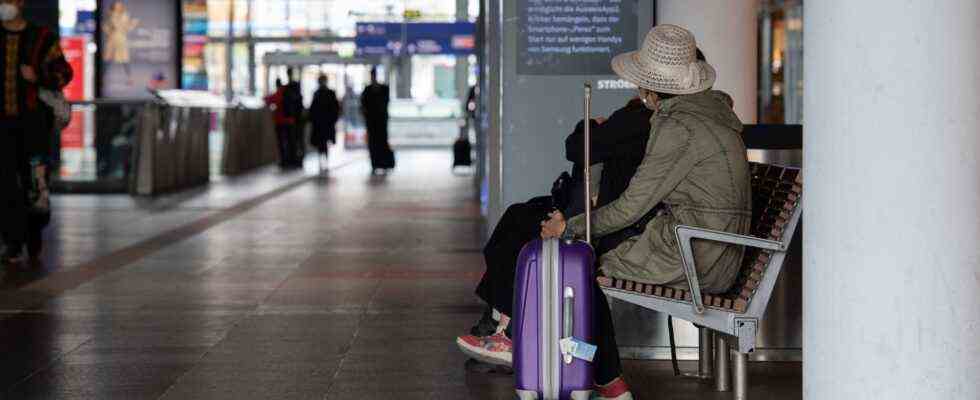Status: 04.09.2021 8:49 a.m.
The strike continues at Deutsche Bahn, and the GDL is coming under increasing public pressure. To paralyze the rail traffic that has just started again after the lockdowns so massively is inappropriate and wrong, so the criticism.
In view of the strike at the railway, the demands on the train drivers’ union GDL to negotiate again with the federally owned company are increasing.
The head of the German Federation of Trade Unions, Reiner Hoffmann, also opposed the GDL. With the work stoppages, a professional group like the train drivers would assert their “particular interests against the overall interests of all other railway employees,” said Hoffmann of the “Rheinische Post”. However, the different employees in a company should “not be played off against each other”.
Although the differences between the union and the railway are not very big, GDL boss Claus Weselsky refuses to return to the negotiating table. Essentially, GDL boss Weselsky is about maintaining his union and expanding its sphere of influence in order to gain more members, according to Hoffmann. “With Mr. Weselsky and the GDL it’s all about survival.” However, the GDL is not a member of the DGB, but of the German Association of Officials dbb.
“A completely unnecessary burden on the passengers”
The managing director of the Association of German Transport Companies (VDV), Oliver Wolff, told the dpa news agency: “We are experiencing that passengers no longer have any understanding of the duration of the strikes and the persistence of the GDL not to return to the negotiating table.” Like the larger rail and transport union EVG, the GDL is a member of the VDV.
Wolff said the association respected collective bargaining autonomy. In the context of the corona pandemic, however, the VDV could not show any understanding for the GDL strike. “During the entire period of the pandemic, there was broad consensus between politics and companies that public transport should be fully maintained.” With the strike, the GDL “deliberately and deliberately narrowed the offer and thus created a completely unnecessary burden on the passengers”.
Renewed criticism from the passenger association
After the victory in court on Friday, the GDL wants to continue the strike until the scheduled end on Tuesday at 2 a.m. Most outsiders cannot understand the severity of the labor dispute, said Vice-President of the Greens, Oliver Krischer. “It is carried out on the customer’s back.” Right now it should be about increasing the number of passengers after the lockdowns, said Krischer.
After the severe slump caused by the Corona crisis, rail traffic was just about to pick up speed again, said the managing director of the transport alliance Allianz pro Schiene, Dirk Flege, of the dpa. “There comes the next blow with the long strike.” Trucks are booming in freight transport, but the market share of rail has even recently fallen. “And in passenger transport, during the pandemic we saw that many people switched to cars,” said Flege. This is not compatible with climate protection in transport and runs counter to all transport and environmental policy objectives of the federal government. Strikes are a legitimate tool in collective bargaining disputes. “But we mustn’t lose too much time now due to further setbacks for the climate-friendly railways.”
9,000 rental bikes in 80 cities
Meanwhile, Deutsche Bahn announced that it would provide 9,000 rental bikes for 30 minutes free of charge by the end of the strike. The company told the AFP news agency that the offer applies to around 80 cities and regions across Germany. The campaign is supported by the city partners of Deutsche Bahn and the municipalities. With the bicycle campaign, she wants to address commuters who use it to get to work.
In total, the railway offers around 16,000 rental bikes, including pedelecs and cargo pedelecs, which, however, are excluded from the free minute offer. According to the railway, the first 30 minutes of the subscription are free anyway for the large rental bike systems in Hamburg and Lüneburg. For the remaining 9,000 bikes, interested parties must register in the app with Call-a-Bike or RegioRadStuttgart, which also belongs to the Call-a-Bike group. The free minutes are then billed for each rental process; there is no obligation to subscribe.

